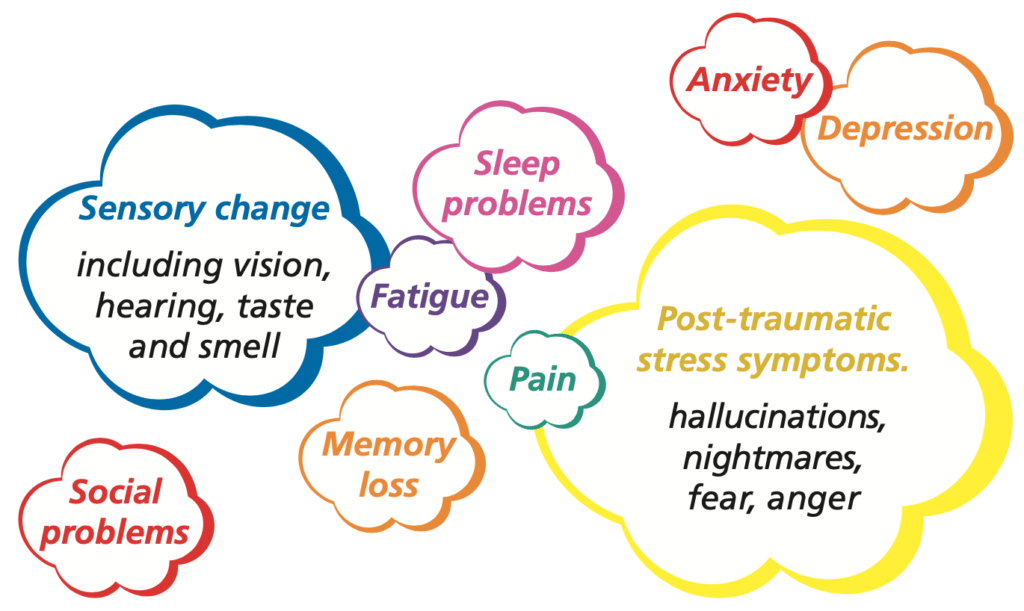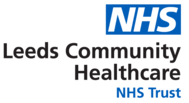Emotional Impact of Long COVID
The experience of having COVID-19 can be very frightening. It is understandable that the experience and then suffering from ongoing symptoms months after contracting the virus can have a huge emotional impact.
Having ongoing symptoms can cause common problems outlined below:
Having ongoing symptoms can cause common problems outlines below:
- Feeling anxious when struggling to catch your breath and when your heart feels like its racing
- Feeling low in mood
- Wondering if this will ever go away
- Worries about getting back to work
- Worries about family or friends becoming ill and suffering
- Health experts not always being able to answers all your questions or give explanations
If you were treated in the hospital you might also experience:
- Unpleasant images from your stay, that might seem to come ‘out of the blue’.
- Nightmares
- Feelings of panic with any hospital reminders

What can help?
Relaxation is an important part of energy conservation. It can help you to control your anxiety, improve the quality of your life and reduce pain. Below is a technique you can use to manage anxiety and help you relax.
- Avoid watching too much news or social media if its making you feel anxious
- Speak to family and friends
- Try to do activities that you find enjoyable and relaxing
- Don’t be too hard on yourself if there are things that you are finding harder to do, and remind yourself that recovery takes time.
- Focus on what is in your control
1. What are five things I can see?
2. What are four things I can feel?
3. What are three things I can hear?
4. What are two things I can smell?
5. What is one thing I can taste?
Think of the answers slowly to yourself, one sense at a time and spend at least ten seconds focussing on each one.
There are a number of different relaxation techniques you can try, different people prefer different techniques. You can search on the internet to explore different strategies.
• Progressive muscle relaxation
• Mediation
• Mindfulness
• Guided imagery or visualisation
• Alexander technique
• Aromatherapy
• Tai Chi
• Yoga
• Music
Thinking patterns and symptoms
It is important to remember that your symptoms are a normal part of your recovery following COVID 19.
Worrying and thinking about your symptoms can often make them worse. This is partly due to paying attention to something will magnify or increase it.
If you focus on your breathing or heart rate for a couple of minutes you will feel the sensations more. This is the same with all long COVID symptoms. For example, if you focus on headaches, you will likely get more headaches, if you focus on poor sleep you will likely struggle to sleep and if you focus on struggling to concentrate, concentration will become increasingly difficult.
Before you experienced COVID-19 you may have had some of these symptoms before therefore treat them in the same way you would have done before. We do not mean to ignore your symptoms, and you should still discuss any ongoing symptoms with your medical team as they may be able to offer treatment to help with any symptoms felt.
Often symptoms are linked: meaning an increase in one symptom leads to an increase in another symptom. If you are fatigued your concentration will be effected, this in turn will affect your memory. These lapses of memory can increase your anxiety, which increases your fatigue. As you can see this goes round in a cycle. Therefore, an improvement in one area should lead to an improvement in another.
During your recovery you will have good and bad days, or ups and downs. This is normal and it is important not to dwell on the negative. Throughout your rehabilitation try to be kind to yourself, try to think what advice you might give to a friend rather than being too critical on yourself.
Resources
Thank you to the contributors for this page


